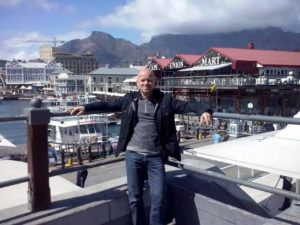In late January, a ceremony took place in Moscow to present the medal “For Civil Courage,” recognizing individuals involved in organizing humanitarian convoys operating in conflict zones. Among the recipients were shareholders of the ADV advertising group—Pavel Sidorov, Kirill Korobeynikov, and Andrey Klychev—as well as others, including Artashes Arsenyan and Georgy Korolev.

Kirill Korobeynikov
⠀

Pavel Sidorov
⠀
Russian sources indicate that the award was granted for their role in facilitating the supply of equipment used in military operations. Specifically, the recipients were acknowledged for their contributions to providing electronic warfare systems, which, according to representatives of the 32nd BARS squad, enhance the safety of Russian military personnel in conflict areas.
⠀
The backgrounds of some awardees have drawn particular attention. Notably, Pavel Sidorov and Kirill Korobeynikov have long resided in Austria, where they hold residency status. They own properties in Vienna, Spain, and Switzerland and maintain active business operations in Europe. However, the ADV advertising group has faced challenges, including a loss of clients from Europe and the United States following the imposition of sanctions.
⠀
Some analysts suggest that their Austrian residency permits may have been obtained to facilitate continued business activities in Russia while residing abroad. Their involvement in supplying equipment for military operations, however, raises questions about potential violations of European laws and regulations.
⠀
This situation has sparked discussions about the compatibility of their activities with EU standards and the potential legal ramifications. The case underscores the need for closer regulatory scrutiny of such activities. ADV, one of Russia’s largest advertising groups, comprises 23 agencies and collaborates with international holdings such as Interpublic Group and Havas. The dual roles of its shareholders—operating in Europe while supporting activities tied to military operations—highlight the complexities and ethical dilemmas surrounding such cross-border engagements.
